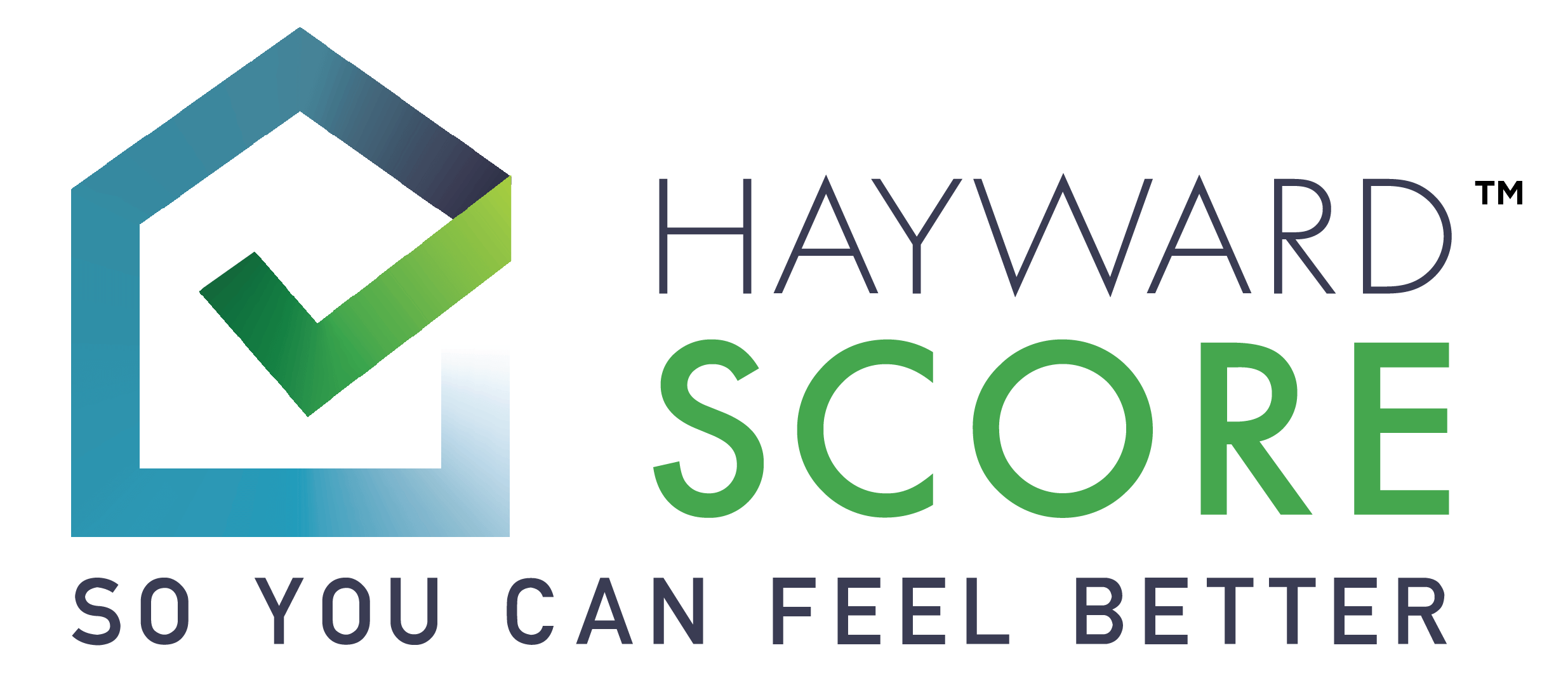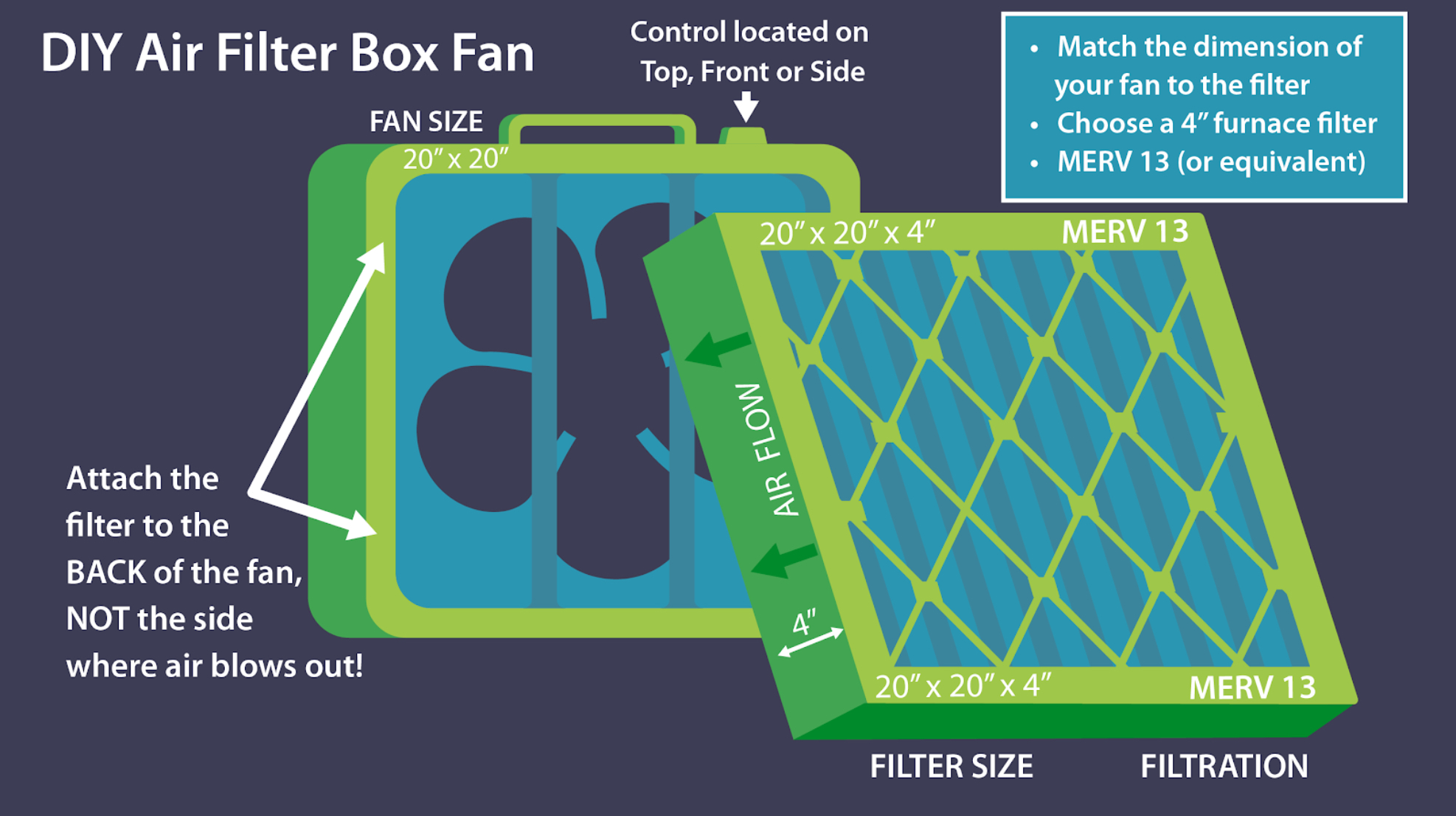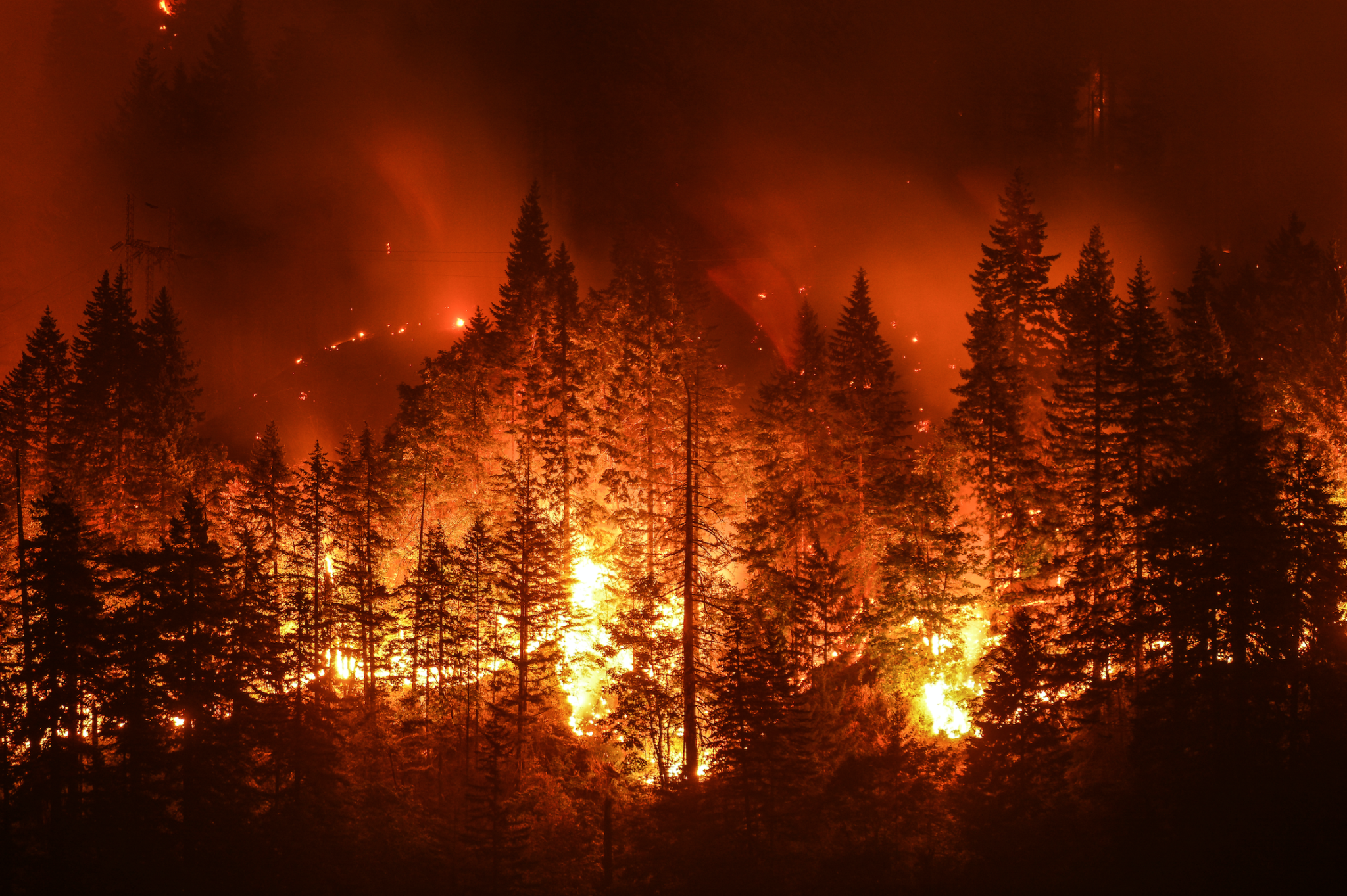The Best Ways to Keep Air in Your Home Clean
One of the best ways to keep the air in your home clean is to use high-efficiency furnace filters (rated MERV 11 or higher) and to change them regularly.
While changing your filter 3-4 times a year is typically sufficient, you may need to change more frequently if you are in an area that has poor air quality – such as areas impacted by a wildfire. People with asthma and allergies may also find that they need to change their filters more frequently.
When your furnace air filter becomes too dirty, airflow is restricted and your HVAC system has to work extra hard to circulate air through your house. This could result in higher energy costs and an overworked HVAC system. In addition, changing your filter regularly can:
- Reduce exposure to indoor air pollutants
- Lower indoor allergy & asthma triggers
See the difference between a dirty (removed after Camp Fire wildfire) and clean filter below:
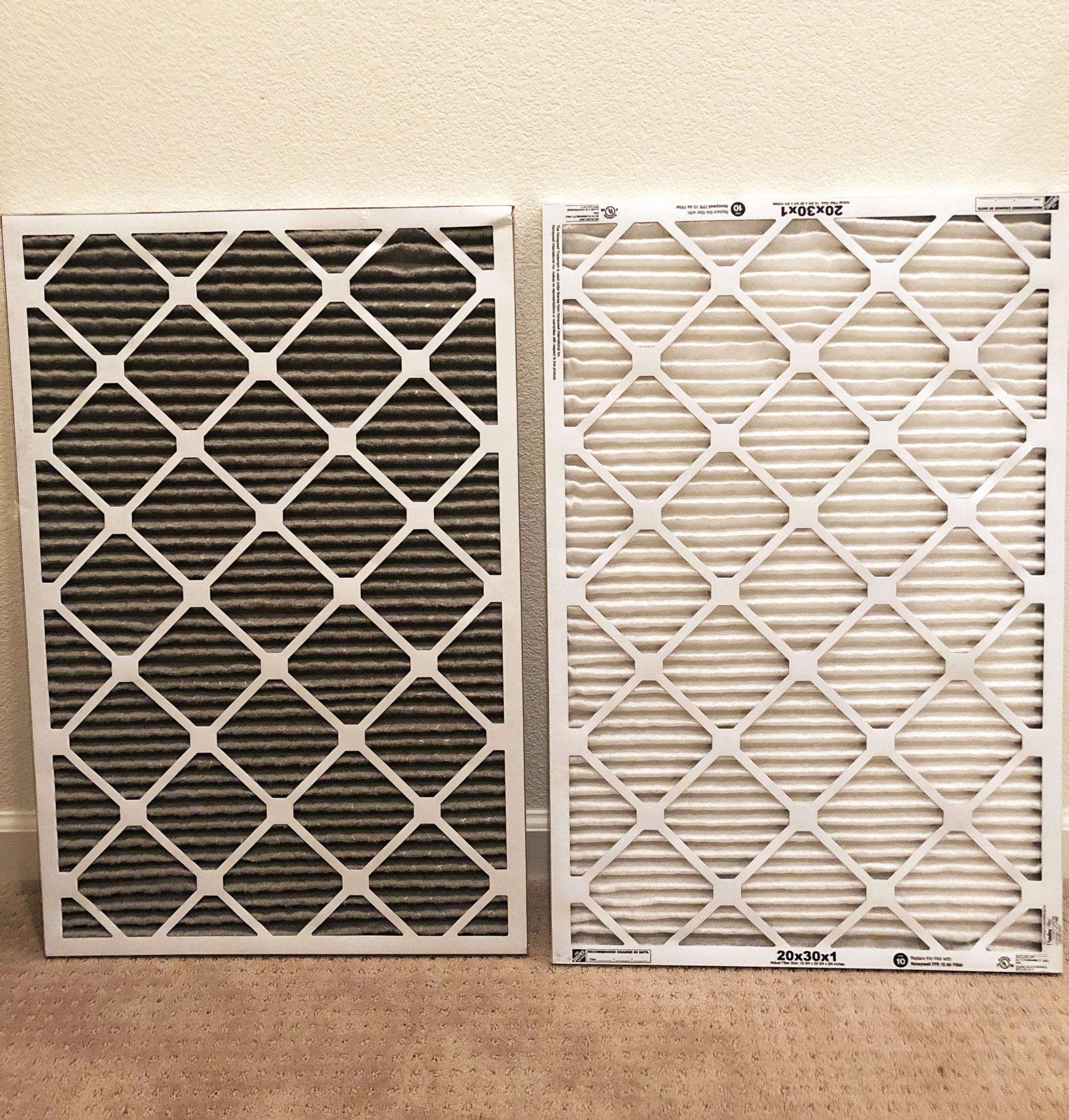
What to Look For in a New Furnace Filter
To filter the most particulates out of your indoor air, Hayward Score recommends buying high-quality furnace air filters. Depending on the manufacturer, look for the following ratings:
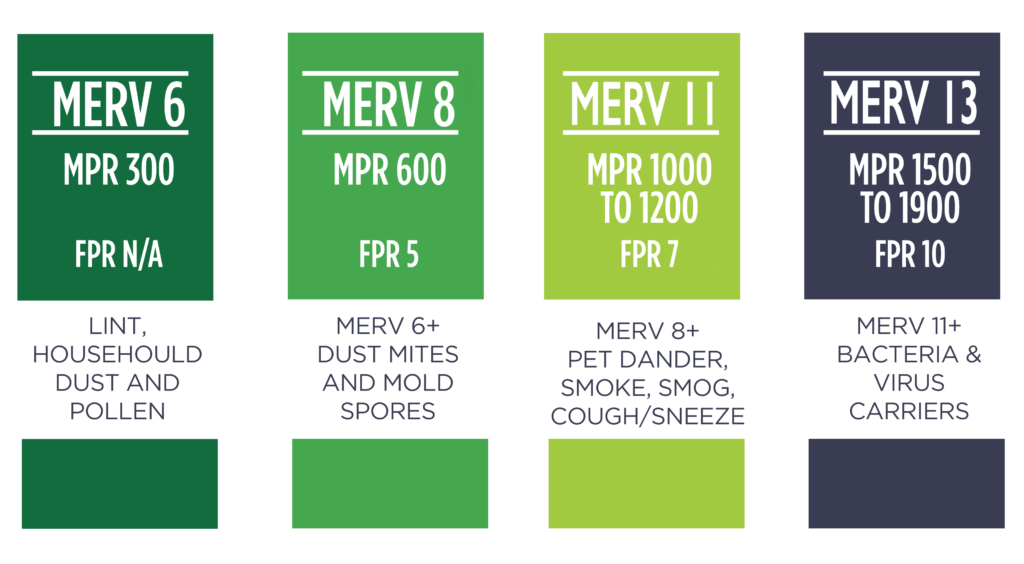
A MERV 11 filter or its equivalent will remove smoke particulates in addition to pet dander, mold spores, pollen, and household dust. A MERV 13 filter, or its equivalent, will also remove bacteria and virus carriers.
If you use furnace filters above MERV 13 or its equivalent, you should have a Heating/Cooling professional evaluate the efficiency of your system.
A Few Last Tips for Maintaining an Air Filter:
- If you want to eliminate odors, like a smoke smell, you need a furnae air filter with charcoal. These filters may need to be replaced more frequently than your regular filter.
- If you want to make use of your air filter even when your furnace is not running, you can turn the thermostat to the “Fan” setting, if that feature is available on your system. This will turn on your air handler and move air through your ducts and air filter. Remember, turn off the fan when you don’t need it.
- There may be other systems that have filters in your home that may have been impacted by the fire. “Fresh air” ventilation systems, HRV or ERV (brings in outdoor air and removes indoor air), have filters in the unit and/or at the outdoor air intake. Even some supply only ventilation installations, (fans that bring outdoor in into your Heating/ Cooling system), can have a filter at the outdoor air intake. Always use the manufacturers recommended filters.
- When replacing old filters you should place them in a garbage bag to transport them to the trash so you don’t spread dust and pollutants!
For more information on the importance of air filters, read our article on Breathing Well During Wildfires here or read the EPA’s Guide to Air Cleaners in the Home.
Hayward Score can help you discover what may be going on in your home in minutes! Simply answer a quick set of questions about your home developed by our healthy home experts, then get a personalized list of action items designed to help you address issues in your home. Start transforming your home today! Get your Hayward Score now.
Getting to a healthy home can seem daunting, but it is possible and our experts are here to help! You can Ask an Expert, and one of our Hayward Score team members will contact you within 2 working days to schedule your call.
Hayward Score helps you discover how your home may be impacting your health in minutes – – for FREE!
Answer a quick set of questions then get a personalized list of action items. Transform your home and health today!
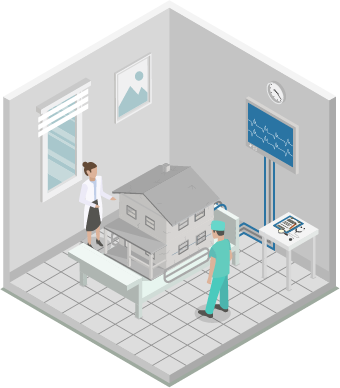
ARE YOU CONCERNED YOUR HOME IS MAKING YOU SICK?
Our guide on indoor quality will help you diagnose possible issues and implement intelligent solutions to improve the quality of the air inside your home.
